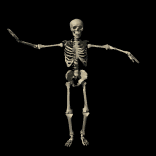IT IS A SAD DAY IN THE MUSIC WORLD
R.I.P ISAAC HAYES
you will be missed but NEVER forgotten.

Isaac Hayes, Soul Legend And The Voice Of 'South Park' Character Chef, Dead At 65
Singer/songwriter died Sunday afternoon.
Isaac Hayes — a legendary soul singer, songwriter, musician and producer whose career spanned four decades and who achieved unexpected fame later in life as the voice of "South Park" character Chef — died Sunday afternoon (August 10), a spokesperson for the Shelby County, Tennesee, sheriff's department told WMC-TV in Memphis.
Hayes' wife found him on the floor near a treadmill inside his home, according to the station's Web site. Hayes was taken to Baptist East Hospital in Memphis, where he was pronounced dead at 2:08 p.m.
Deputies with the Shelby County Sheriff's Department are continuing their investigation into Hayes' death, but they believe no foul play was involved, the report said. Hayes was 65.
Born in Covington, Tennessee, in 1942, Hayes was a key figure in the development of the 1960s Southern soul sound before going on to a successful solo career.
He made his public singing debut in church at the age of 5, and taught himself piano and saxophone before relocating to Memphis and performing with groups there, according to All-Music Guide. In 1964, he began playing with the Mar-Keys, which led to his long stint as a musician, songwriter and producer for the legendary Memphis soul label Stax Records.
Over the following years, Hayes and songwriting partner David Porter wrote a reported 200 songs, including such soul classics as Sam & Dave's "Soul Man" and "Hold On, I'm Comin'," Carla Thomas' "B-A-B-Y" and Johnnie Taylor's "I Had a Dream."
Hayes released his debut solo album in 1967, but his breakthrough came two years later with the classic Hot Buttered Soul, which featured lush, ambitious arrangements and an innovative structure, and exerted a profound influence on many soul albums to come — not least Marvin Gaye's What's Going On.
In 1971, Hayes reached the peak of his musical popularity with the single and album Shaft, the score from the film. The song not only was an archetypal slice of funk that garnered Hayes a #1 single and Grammy and Academy Awards, the talk-singing style he employed on it exerted a huge influence on rap music.
After the strong albums Black Moses and Joy, Hayes' popularity waned in the coming years, exacerbated by a legal battle with Stax over royalties. He filed for bankruptcy in 1976.
Hayes continued to perform and record over the following years, but he didn't reappear on the mainstream radar until 1997, when he provided the voice for the "South Park" character Jerome "Chef" McElroy. Originally intended to be a one-off appearance, Hayes' character quickly became one of the show's most popular characters, providing the main children characters with advice and often breaking into comical R&B love songs that parody some of the songs he'd written in the first place. Hayes sang the notorious "Chocolate Salty Balls" on the "South Park" album Chief Aid.
A Scientologist since the mid 1990s, Hayes parted company with the show after a 2005 show that skewered the religion. A press release announcing his separation from Comedy Central, which airs "South Park," was issued in March 2006. Hayes reportedly suffered a stroke in early 2006, and was occasionally unsteady in public appearances thereafter.
Hayes was inducted into the Rock and Roll Hall of Fame in 2002.
The following statement was issued Sunday by Soulsville USA:
"The Soulsville Foundation, which operates the Stax Museum of American Soul Music, Stax Music Academy, and The Soulsville Charter School, is so deeply saddened by the passing of Isaac Hayes that we are in state of shock. Isaac is one of the most beloved members of the Stax family and we all cherish him. He will be missed not only by us, but also by the entire world and the millions of people who love him as much as we do.
"Marc Willis, CEO of the Soulsville Foundation, said, "Isaac was unique and an inspiration to us all. His accomplishments as a musician are unparalleled. But more than that, he was a very dear friend and great supporter of the Soulsville Foundation mission, particularly the work we do with children. We will miss him and his wonderful presence more than we can convey at this time."


